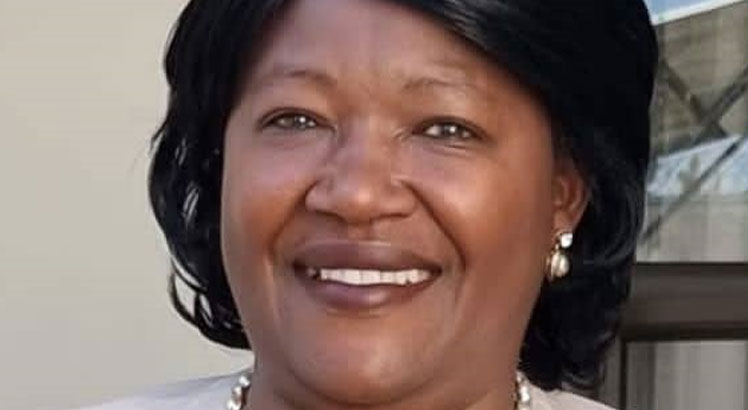K6.7BN schools Project stalls
Ministry of Education paid two contractors K180 million as advance payment for two new primary schools, but construction is yet to start four years on because government is yet to identify land for the projects.
The two schools, which are part of a multi-billion kwacha national project that was supposed to be completed within a year in 2018, are a window into how bad the initiative has been managed.
In all, the ministry planned to construct 15 new primary schools, two teachers’ houses at each school and a school block in Blantyre, Lilongwe, Mzuzu, Zomba and Thyolo districts between January and December 2018, costing K6.7 billion.
But four years later, progress has been decimal while costs are piling and pupils and their teachers continue to suffer.
Due to the delays, the project has faced cost overruns and price fluctuations caused by devaluation of the kwacha. Meanwhile contractors have said the initial total sum will double, making taxpayers spend over K12 billion from K6.7 billion.
The ministry proceeded to make advance part payments to different building contractors, but over four years later, it is yet to identify land for two school projects in Chapima Heights and Mzedi in Blantyre. Ironically, the ministry made part payments to two contractors of about K180 million for the projects.
Ministry of Education Principal Secretary (PS) Chikondano Mussa confirmed her ministry made the payments, but said the works at two sites of Chapima Heights and Mzedi could not start because the ministry is yet to identify land.
The ministry paid K84 151 964.54 to Opco Construction Limited for a new primary school in Chapima Heights and K95 787 843.50 to Elite Construction Company for the Mzedi project.
Opco Construction Limited contracts manager Evance Nkolongo said in an interview on Tuesday his company has been pushing the ministry to identify land for the project.

He confirmed the company received the advance payment of about K84 million from the total project sum of K420 759 822.70.
“The last meeting we had at Capital Hill in Lilongwe with officials at Ministry of Education, led by deputy director of education infrastructure unit, Mr. Arthur Chiphiko, was last December. An assurance was made the ministry would identify the land. We are still waiting,” Nkolongo said.
Of the 15 primary schools targeted, only one contractor, Nangaunozge Building Contractors, has completed its project in Chigumula Township in Blantyre. The school is called Namalowe Primary School.
The company has also written to the ministry requesting a handover process after completion of their project, according to Nangaunozge’s administration officer Griffin Saka.
A visit to the site by The Nation last week confirmed the completion of the project consisting of eight blocks, with two classes each block, administration block, two teachers’ houses and toilets, at a contract cost of K380 722 243.00, with advance payment of K76 144 448.60.
Saka said they were working on price fluctuations to come up with the exact cost of the project due to the kwacha devaluations. He said their secret to complete the project was sourcing of funds elsewhere to finance it.
Thyolo North legislator Ephraim Nayeja, who led a team of members of Parliament from the Parliamentary Committee on Education, visited the projects in Blantyre early last month and he expressed satisfaction with Namalowe Primary School project.
However, he expressed concern over delays with the other projects.
Nayeja said: “This is a 2018 Ministry of Education project which was supposed to be complete by December 2018. The cost is likely to double due to the devaluation of the kwacha. There are cost overruns and all that.
“The delays have been caused by delays by the ministry to disburse funds. We wanted the schools opened as early as yesterday to decongest classes, but it has not been possible.”
Besides missing the project deadline, there are different progress rates on the primary school projects, with others registering below 50 percent of the work progress, according to information supplied by the ministry.
Mussa said the contracts were signed at the same time, but works started at different times because of how the contractors planned their work.
“The mobilisation levels may be different. As works progress, the differences may show because of how well or how poorly planned the project was, which affects performance when construction commences,” said the PS.
She said the total cost of the project is K6 724 028 552.81, but with cost fluctuations as observed by the contractors, the cost would be more than double.
Mussa said the ministry gave all the contractors the working capital advance, using bank bonds. She said the devaluation of the kwacha in 2022 affected progress.
“However, the contractors may use their credit facilities with material suppliers to improve or speed up completion. These are all contractual agreements. Those that have finished the works [would] be paid in full or their payment is being processed for the work done,” she said.
At Chinamwali in Zomba, the school project work by a joint venture of Building Master and Catoi is at 15 percent and the total amount paid so far is K175 million against a total contract sum of K411 million, according to the ministry.
The ministry estimates work progress at a new school at BCA Hill in Blantyre to be at 29 percent, with advance payment of K91.7 million made to the contractors, Tapita and Donekis joint venture, against the total contract sum of K392.4 million.
A visit by The Nation to the BCA Hill site found the contractor working on the project, and with noticeable progress.
Chabuka Millias, a director at Tapita, said in an interview at the site that the ministry may have recorded the progress ratings before resumption of the work at the site earlier last month.
During the visit, we found carpenters fixing timber on five blocks of two classrooms each, ready to put iron sheets on the roofs.
Millias said they will be working on price fluctuations to determine the project’s current cost, adding the delays in financing the projects, coupled by the kwacha devaluation ,will make the initial cost more than double.





